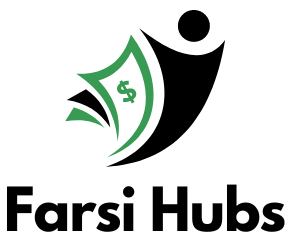There is a lot of freedom and convenience when freelancing, but there are also many financial risks. Freelance workers should have a strong plan in place to access money in an emergency. Being prepared can make all the difference when you face unexpected costs, a loss of revenue, or a global economic downturn. This article discusses six important tips for emergency financing for freelancers.
Set Aside Money for Emergencies:
Building a strong emergency fund is one of the best ways to deal with financial problems. Try to save enough money to cover three to six months’ living expenses. This money should be used to pay rent or mortgage, utilities, food, insurance, and more. Having a cash cushion can give you peace of mind and provide a safety net when the unexpected happens.
Create a budget that outlines your monthly income and expenses so you can save for emergencies. Set aside your salary regularly to save. To avoid using your emergency fund for non-emergency situations, you can use another savings account. Set up automatic savings so your emergency fund always has money.
Diversify Your Income Sources:
Most freelancers rely on a small group of clients to make the majority of their money. This allows employees to earn money but also leaves them vulnerable to dismissal or a reduction in workload by customers. Having multiple sources of income can help reduce this risk.
Find independent work that better suits your skills, or consider creating a passive income stream. This could mean trading, affiliate marketing, or selling digital products. Obtaining financing from a variety of sources can help you build a more stable financial foundation that can withstand changes in any area.
Negotiate Payment Terms:
Discuss better payment terms with your customers to improve your cash flow and money management. You can request partial payment in advance or periodic payments during the duration of the assignment. This keeps money flowing in and reduces the impact of payment delays.
Also, make sure that the payment terms in the contract are clear and easy to understand. Include the due date, late fees, and any interest on overdue accounts. Setting these goals up front will help clients stick to the terms you agreed to and ensure your financial security.
Check out Financial Products Built Specifically for Freelancers:
As the gig economy continues to grow, financial companies are increasingly aware of the unique needs of freelancers. Check out business credit cards, business lines of credit, and banking solutions created specifically for freelancers as examples of financial products and services designed with them in mind.
Typically, these products come with features designed to accommodate the unpredictable income and project-based nature of freelancing. Look for options that give you choice, fair interest rates, and incentives that match the costs of your business.
Learn New Skills and Adapt:
In an ever-changing labour market, it is important to remain current and flexible. Check your skills regularly to find out what you can do to improve or grow. Further training not only makes you more marketable, it can also lead to better-paid contract work.
By staying abreast of changes in your field, you can make yourself an in-demand employee and reduce the chance of being out of work for an extended period of time. This proactive approach not only helps you save more money for emergencies, but also ensures that people still need your skills.
Insurance for Working from Home:
People who work as freelancers do not always have the safety net that comes with a regular job, such as health insurance, disability insurance, or unemployment benefits. Purchasing insurance designed specifically for employees is a smart way to protect yourself against the unexpected.
It is important to get health insurance because it can cover your medical bills if you get sick or injured. Disability insurance protects your wages if you are unable to work due to disability. It may seem like an extra expense, but it will give you peace of mind about your money in difficult times, which is invaluable.
Conclusion:
Being a freelance worker has its own challenges, and being prepared for financial emergencies is an important part of being a successful worker. Freelancers can develop a strong financial plan by saving for emergencies, establishing multiple income streams, discussing payment terms, researching financial products designed specifically for freelancers, learning new skills, and purchasing insurance. Through careful planning and a willingness to take action, freelancers can navigate the unknowns of work and achieve financial stability.
FAQs:
1. Why Do Freelancers Urgently Need Cash?
As a freelancer, you may not receive a regular salary, you may incur unexpected costs, and you may not receive the benefits of a regular job. An emergency fund can protect your finances during difficult times, cover unexpected expenses, and keep you financially stable despite the circumstances.
2. How much money should a freelancer save for emergencies?
Try to save enough money to cover three to six months’ living expenses. Add up your monthly bills, food, rent, and insurance to calculate how much you should have in your emergency fund. Saving extra money can help if you suddenly encounter money problems.
3. What other ways can migrant workers make money?
Freelancers can increase their income by finding more freelance jobs that match their skills, creating passive income streams (such as digital products or affiliate marketing), or even investing. Diversification makes businesses more stable and reduces losses when major customers leave.
4. What are some good ways for employees to get paid?
Freelancers can better manage their cash flow by negotiating clear payment terms, partial upfront payments, and milestone payments in their contracts. By setting clear goals from the start, you can reduce the chance of payment delays and ensure a stable income stream.
5. Are there financial products made specifically for freelancers?
Yes, banks offer products such as business credit cards, business lines of credit, and banking solutions designed for freelancers to meet their specific needs. These products often offer customizability, low interest rates, and unpredictable income for freelancers.




